Matthew 11:2-3, When did John the Baptist learn Jesus was the Messiah?
When John heard in prison what Christ was doing, he sent his disciples to ask him, “Are you the one who was to come, or should we expect someone else?”
//In trying to figure out how and when John learned of Jesus’ Messiahship, we have on record two primary events: Jesus’ baptism, and John’s imprisonment. Let’s start with the latter. Today’s verse, in Matthew, indicates that John, sitting in prison, had not yet heard of the Messiah’s arrival. However, John 1:29 reads differently:
The next day John saw Jesus coming toward him and said, “Look, the Lamb of God, who takes away the sin of the world!”
But two chapters later in John 3:24 makes it clear that “This was before John was put in prison.” So John’s Gospel insists the Baptist knew about Jesus before prison, while Matthew says he learned about him only after being imprisoned. But wait. It gets even more complicated. Reading now about Jesus’ baptism:
Matthew 3:13-14, Then Jesus came from Galilee to the Jordan to be baptized by John. But John tried to deter him, saying, “I need to be baptized by you, and do you come to me?”
Doesn’t this seem to indicate that the Baptizer knew about Jesus before baptizing him? That’s Matthew’s version. If we read the story in John’s Gospel, we get a different story:
John 1:31-33, “I myself did not know [Jesus], but the reason I came baptizing with water was that he might be revealed to Israel.” Then John gave this testimony: “I saw the Spirit come down from heaven as a dove and remain on him. I would not have known him, except that the one who sent me to baptize with water told me, ‘The man on whom you see the Spirit come down and remain is he who will baptize with the Holy Spirit.'”
Clearly, in this version, the Baptist didn’t know about Jesus until after he had baptized him.
Oh, what a tangled web. If we must choose between Matthew and John, John’s story at least makes chronological sense.
Book review: The Rise and Fall of the Bible
by Timothy Beal
★★★★★
Beal is a professor of religion at Case Western Reserve University, and an accomplished author. His writing style is fluid, intelligent and entertaining. I confess, though, that I’m not totally sure what the focus of this book is! The subtitle is The Unexpected History of an Accidental Book, which is pretty open-ended, and Beal takes advantage of his generic subtitle to meander around a bit, working in a number of interesting tidbits and topics. Makes for a great, if a bit undirected, read.
Beal is a Christian with a deep respect for the Bible, albeit one who has “drifted quite a distance from the familiar biblical waters of the conservative evangelical tradition in which [he] was raised.” Bottom line, he doesn’t consider the Bible inerrant by any stretch, and finds beauty and inspiration in its multitude of voices.
Beal begins by bemoaning America’s Biblical illiteracy. Less than half of all adult Americans can name the first book of the Bible, or the four Gospels. More than half of graduating high school seniors guess that Sodom and Gomorrah were husband and wife. The Bible has risen to the status of a cultural icon, but it’s no longer read. Instead, value-added products such as magazines and graphics novels is a thriving industry. Anything to avoid reading the Bible’s actual text.
If we did read the Bible regularly, we probably wouldn’t be convinced of its univocality (meaning, the assumption of its internal consistency.) Most of us have the idea that the Bible provides answers to life’s questions, and when we come to a crossroads, we’re taught to ask, “What does the Bible say?” Fact is, the Bible will often say lots of things on our topic, drowning us in a confusing array of contradictory advice. The Bible is not a book of answers, but a library of questions. Not a wellspring of truth but a pool of imagination, rich in ambiguity, contradiction, and argument.

Joel 3:10, Beat your plowshares into swords
Beat your plowshares into swords, and your pruninghooks into spears.
//Here’s an absolutely fascinating comparison of two opposing opinions about what the final days will be like.
In the day of the Lord’s arrival, says Joel, God’s mountain will be holy. “The mountains shall drop down new wine, and the hills shall flow with milk, and all the rivers of Judah shall flow with waters, and a fountain shall come forth of the house of the LORD, and shall water the valley of Shittim.” All will be well in the Kingdom to come. And how will God’s righteous reign be ushered in?
By force. By beating plowshares into swords, and pruninghooks into spears. God calls the nations together to war, so that he may cleanse the earth of wrongdoers.
Isaiah shares Joel’s dream of a Kingdom to come. In the last days, according to Isaiah chapter 2, “The mountain of the LORD’S house shall be established in the top of the mountains, and shall be exalted above the hills; and all nations shall flow unto it.” Again, as in Joel’s dream for the future, God calls upon the nations, and asks them to…
Isaiah 2:4, Beat their swords into plowshares, and their spears into pruninghooks. In this version of God’s holy reign, “nation shall not lift up sword against nation, neither shall they learn war any more.”
Hmmm. Which would you choose?
Book review: Revelation: The Way it Happened
by Lee Harmon
★★★★
“A very interesting book …”
The following is an unsolicited review of my book posted on Amazon by Henry Slofstra. Thanks, Henry!
I found this to be a very interesting book, given my predilection for imaginative Christian literature, such as Dante or Milton, over scholarly work. The book straddles the two genres, and this neither fish nor fowl approach has likely undone some readers and reviewers. In my own view, the book is at its best when Harmon is in story-telling mode, imaginatively reconstructing events in the Mediterranean world during the slice of time in which the last book of the Bible was written. The protaganists are a Jewish Christian father and his son, but the perspective sometimes shifts to that of the writer, John, whoever he may have been. Harmon subscribes to the Preterist view, which means that the events depicted in Revelation correspond with first century Roman and Jewish history, and less so, with a predictive vision of the end of days as given to John by God. You don’t need to accept the Preterist view in order to enjoy the book; but there’s no question that the times in which the book was written were epical. Given one reviewer’s view that the book may shake one’s faith, I’d add only that some faiths could do with a bit of shaking.
The format of the book is unconventional in how different modes of discourse are handled. It’s not bad, and perhaps an improvement. The usual approach is to place background asides in box insets, and corroborating material in footnotes. Harmon has used the approach of setting these asides inline in a different font, and I found that this approach did avoid the kind of annoying page flipping found in other secondary histories.
At least this is a book that works for me, at an imaginative level, given that I’m not a reader interested in questions of scholarship addressed in the extensive bibliography cited by Harmon. I look forward to more from this writer.

Book review: The Bible for Dummies
by Jeffrey Geoghegan, PhD & Michael Homan, PhD
★★★
I’m reading another book now that highlights the sad state of America’s Bible illiteracy. Even as we continue to sell more Bibles and religious titles every year, the Bible is actually being read less and less. I doubt if anyone who regularly reads my blog falls into this category, but a number of my friends do, and I’d like to find an easy introduction to the stories in the Bible. What better choice than a Dummies book, right?
I’m a huge fan of the Dummies series! Since they introduced their trademark fun and attractive layouts for computer-related topics years ago, I’ve accumulated quite a collection. I even included a Dummies book in the “suggested reading” appendix of my book about Revelation! Scholarly suicide, you think? Fact is, I find most of them well-researched and generally unbiased.
Turns out this one was a bit of a disappointment. The reading is a bit dry, there’s too much discussion of general topics rather than Bible stories, too much emphasis on introducing every book in the Bible instead of just the basics, and too much of a religious bent. The authors feel obligated to explain the stories, adding meaning, which is not only unnecessary but I often found myself disagreeing with their interpretations. So this one didn’t do it for me, and I’m still looking.
Anybody have any suggestions?

Isaiah 13:6, The day is at hand
Howl ye; for the day of the LORD is at hand;
//Well, we all survived Camping’s prediction that the world was coming to an end. How many doomsday dates have come and gone, now? I have no idea, but entire religions have been founded on this promise, that the time has arrived for the Lord’s appearing. And it will be frightening indeed.
We’ve all read Revelation’s promise that the time is ripe. Revelation promises over and over that it’s just around the corner, and it will be bloody.
Paul, too, believed the world teetered on the edge. The day would come while some who heard his words yet lived, and it would be awesome.
John the Baptist taught this. Jesus taught this.
Matthew 4:17, From that time Jesus began to preach, and to say, Repent: for the kingdom of heaven is at hand.
It seems to be a long-standing tradition, dating back to the earliest prophets.
Zephaniah 1:7, Hold thy peace at the presence of the Lord GOD: for the day of the LORD is at hand
Joel 1:15, Alas for the day! for the day of the LORD is at hand
Any day now, guys.
Got an opinion? 0 commentsBook review: How We Believe
by Michael Shermer
★★★★★
Michael Shermer is the founding publisher of Skeptic magazine, the director of the Skeptics Society, and host of the Skeptics Lecture Series. I don’t need to tell you what sort of direction this book is going to take. But even knowing what to expect, this was a fun book, well worth the read!
Shermer, noting that 96% of Americans believe in God and 73% believe that angels regularly visit earth, asks this question: Why? Why do even 40% of scientists proclaim a belief in God? Why do more people believe in paranormal phenomena now than 100 years ago? Why do we believe at all, and why must we seek meaning in higher places? What is our fascination with ghosts and séances? Is belief in God genetically programmed? Some kind of “God module” in our brains?
Mankind is a pattern-seeking animal, whether this talent is used to see the Virgin Mary in patterns of light and shadow or to see meaning within the randomness of coincidental events. Mankind is also a storytelling animal. We love our stories, and our stories do more than describe our reality, they help create our realities. So, as we move from pattern-seeking to storytelling, we naturally journey on to mythmaking. Origin myths abound in various cultures. But the journey of humanity doesn’t end there. From mythmaking we jump ahead to morality, from morality to religion, from religion to God. Perhaps we are wired to believe; perhaps there’s a certain inevitability in the way the human experience has evolved.
Shermer presents a number of studies and interviews as he leads us on this journey. One of the most fascinating studies in Shermer’s book compared answers to two questions: “Why do you believe in God,” and “Why do you think other people believe in God?” The answers don’t jibe. Other people believe in God because they were raised that way, or because it brings them comfort to believe, or because people have a need to believe. But what do people answer as to why they believe? Well, because they’ve thought it through, of course; the universe is too orderly, or the experiences they’ve had could only come from God.
Shermer’s approach is scientific, yet controversial. The conclusions are his own; but I guarantee the book will make you think, and I guarantee you’ll enjoy the read.

Matthew 10:2, who were the Twelve Apostles?
Now the names of the twelve apostles are these;
//I won’t bore you with the rest of the verse. You probably won’t recognize some of the names anyway. Ever hear of Lebbaeus?
The four gospels, the book of Acts, and Paul all agree there were twelve. In fact, they insist. Twelve men, to govern the twelve tribes of Israel when the Messiah returns. But who are these twelve men?
Different writers give different lists, and this has led to endless research, tracking down just exactly who is whom. Here’s the full collection, borrowed from the Skeptic’s Annotated Bible, if you’d like to try your hand at this exercise.
| APOSTLES of JESUS |
MAT
|
MAR
|
LUK
|
JOH
|
ACT
|
GAL
|
|
|
1
|
ANDREW |
X
|
X
|
X
|
X
|
||
|
2
|
BARTHOLOMEW |
X
|
X
|
X
|
X
|
||
|
3
|
JAMES ALPHAEUS |
X
|
X
|
X
|
X
|
||
|
4
|
JAMES, BROTHER of JESUS |
X
|
|||||
|
5
|
JAMES ZEBEDEE |
X
|
X
|
X
|
X
|
X
|
|
|
6
|
JOHN ZEBEDEE |
X
|
X
|
X
|
X
|
X
|
|
|
7
|
JUDAS, BROTHER of JAMES |
X
|
X
|
||||
|
8
|
JUDAS ISCARIOT, SON of SIMON |
X
|
X
|
X
|
X
|
||
|
9
|
JUDAS, NOT ISCARIOT |
X
|
X
|
||||
|
10
|
LABBAEUS THADDEUS |
X
|
X
|
||||
|
11
|
LEVI ALPHAEUS, the PUBLICAN |
X
|
X
|
||||
|
12
|
MATTHEW, the PUBLICAN |
X
|
X
|
X
|
X
|
||
|
13
|
NATHANAEL of CANA |
X
|
|||||
|
14
|
NICODEMUS? |
?
|
|||||
|
15
|
PHILIP |
X
|
X
|
X
|
X
|
X
|
|
|
16
|
SIMON PETER |
X
|
X
|
X
|
X
|
X
|
X
|
|
17
|
SIMON the CANAANITE |
X
|
X
|
||||
|
18
|
SIMON ZELOTES |
X
|
X
|
||||
|
19
|
THOMAS DIDYMUS |
X
|
X
|
X
|
X
|
X
|
Book review: The Calling: Living a Life of Significance
by Kurt Senske
★★★★
This is a self-help workbook for Christians, complete with exercises. A guide to spicing up everyday life with meaning, by discovering and living in alignment with the purpose God has set for our lives. It’s “impossible for us to live the life that God created uniquely for us and continue to live in our old ways.” So, Senske provides a workshop for people who want to change their lives now, who are dissatisfied now with a life of insignificance.
How do we choose our job? How do we manage our finances? How do we budget our time? Although the focus of the book is on secular issues, the solution is always finding the path that’s in harmony with God. We must recognize that we don’t choose our calling; God chooses it for us. Step one, then, according to Dr. Senske, is to make God central to our lives.
Step two is to “connect the dots,” recognizing God’s hand in all of life’s little synchronicities. Step three is to incorporate rituals into our daily lives. By the time you reach the final exercise, your life will be transformed … by accepting God’s purpose for you.
I confess that, as a liberal Christian, I had trouble relating to a few of the themes. Perhaps I overestimated myself when I offered to review a book for Christian living, based upon practices and beliefs many of which I, myself, have grown away from. While I have no trouble imagining a God-filled purpose to life (where “God” may be defined very differently from person to person), I can’t quite relate to praying to Jesus, or seeing the hand of a divine being in odd coincidences, or attending church every Sunday without fail.
I’m going to give the book four stars instead of five, being true to my measurement of how much the book taught and captivated me. But there is much wisdom in many of its strategies, and I’m certain its teachings will click even stronger with more conservative Christians.

Revelation 16:16, The Battle of Armageddon
Then they gathered the kings together to the place that in Hebrew is called Armageddon.
//Revelation tells us that an army numbering 200,000,000 people will be defeated on the plains of Armageddon. “Armageddon” derives from a Greek pronunciation of the “mountain of Megiddo” located north of Jerusalem. Revelation’s prophecy places the battle in the plain of Megiddo near Mount Carmel (no Mount Megiddo exists). In antiquity, all roads connecting Africa with Asia and Europe passed near Megiddo. Seven major passes entered the valley. Its strategic position ensured that many important battles would be fought there—over 250—in the valley under the mountain.
One could surmise that this appears to be a God-chosen battleground. Both Gideon and Deborah, judges of old, earned a victory there. In that valley King Josiah, King Ahaziah, and King Saul perished.
Here’s what makes this valley fascinating to me. It’s literally in the backyard of Nazareth. Jesus would have walked across this valley many times, perhaps musing on the promise that “all those who take up the sword shall perish by the sword.” This famous valley where so much blood was shed may have influenced the humanitarian teachings of our Prince of Peace.


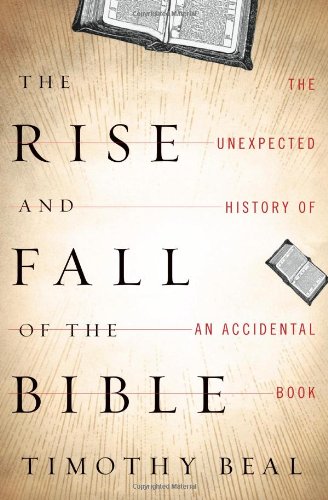
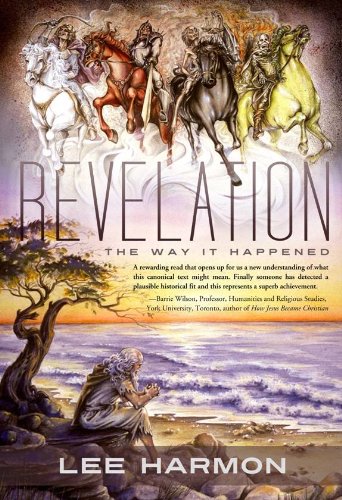
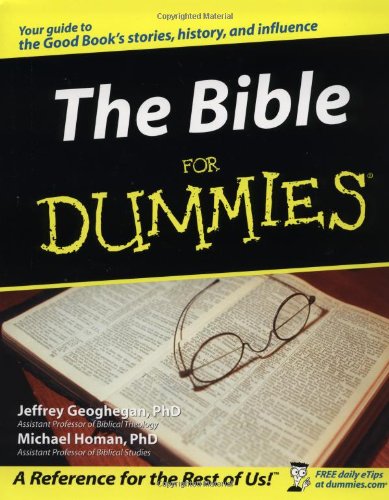
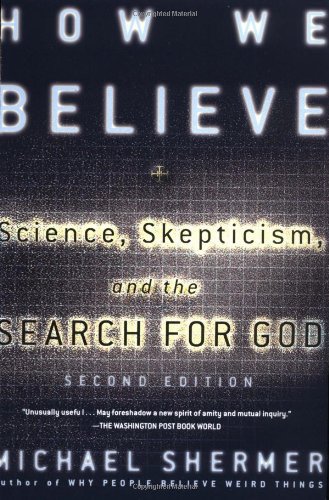
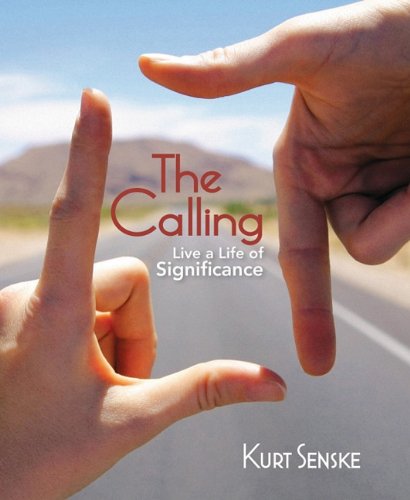









 354 Circles
354 Circles
 603 Goodreads Friends & Fans
603 Goodreads Friends & Fans

 Hello! I'm an author, historical Jesus scholar, book reviewer, and liberal Christian, which means I appreciate and attempt to exercise the humanitarian teachings of Jesus without getting hung up on any particular supernatural or religious beliefs.
The Bible is a magnificent book that has inspired and spiritually fed generations for thousands of years, and each new century seems to bring a deeper understanding of life’s purpose. This is true of not only Christianity; through the years, our age-old religions are slowly transforming from superstitious rituals into humanitarian philosophies. In short, we are growing up, and I am thrilled to be riding the wave.
I avidly read all thought-provoking religion titles. New authors: I'd love to read and review your book!
Hello! I'm an author, historical Jesus scholar, book reviewer, and liberal Christian, which means I appreciate and attempt to exercise the humanitarian teachings of Jesus without getting hung up on any particular supernatural or religious beliefs.
The Bible is a magnificent book that has inspired and spiritually fed generations for thousands of years, and each new century seems to bring a deeper understanding of life’s purpose. This is true of not only Christianity; through the years, our age-old religions are slowly transforming from superstitious rituals into humanitarian philosophies. In short, we are growing up, and I am thrilled to be riding the wave.
I avidly read all thought-provoking religion titles. New authors: I'd love to read and review your book!
 Hi! While Lee writes the articles and reviews the books, I edit, organize, and maintain the blog. The views expressed here are Lee's but I'm his biggest supporter! :-)
Hi! While Lee writes the articles and reviews the books, I edit, organize, and maintain the blog. The views expressed here are Lee's but I'm his biggest supporter! :-)
Connect With Me!